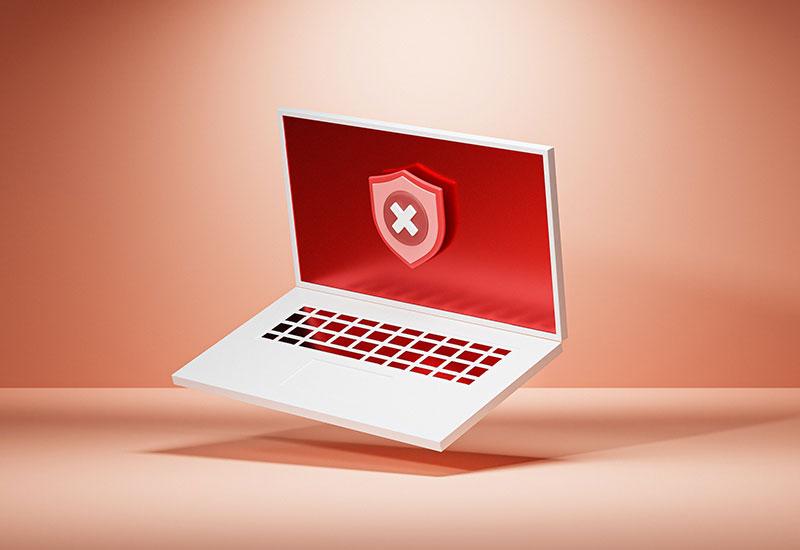Is Identity Theft Protection Worth It? Pros and Cons Compared

Start Building Your
Child’s Credit
If you’ve seen the recent identity theft statistics, you may be concerned about the security of your private information. Staying safe can be challenging without help, so you may ask, “Is identity theft protection worth it?”
The answer depends on multiple factors, which are outlined in this article. You’ll learn how to determine if investing in identity monitoring services pays off and what you get for your money. We’ll also discuss child identity theft as a particularly concerning crime and help you see if your child can benefit from expert protection.
Why Is It Important To Have Identity Theft Protection?

It’s crucial to have at least some form of identity protection—regardless of whether you’ll safeguard your ID yourself or enroll in a service. Over 40 million Americans suffered the consequences of identity theft in 2022, with the total loss estimated at around $43 billion dollars.
This is all the proof you need that ID security should be taken seriously. Criminals have gotten disturbingly skilled at stealing personally identifiable information (PII), especially in today’s online world, where so much sensitive data is readily available. Now the question is—can you safeguard your identity without paying for identity protection services?
Should You Get Identity Theft Protection or Secure Your PII on Your Own?
To answer this question, we need to look at three factors:
- The work it takes to protect your identity single-handedly
- Benefits and drawbacks of paid identity protection services
- Your individual risk of falling victim to identity fraud
Can You Protect Your Identity Without a Paid Service?
It’s technically possible to reduce the risk of identity theft by following the right safety practices. In a nutshell, identity theft protection breaks down into two categories:
| Category | Explanation |
| Monitoring | You should monitor your PII and sensitive documents like your government-issued ID, Social Security card, and all other documentation someone could abuse |
| Reporting | If you notice any unusual activity, you need to report it to the relevant authority immediately so that they can investigate the matter and determine if there’s any abuse of your PII |
The above tasks sound simple enough at first glance, but they’re quite challenging when you get into the details. An average person is far too busy to constantly monitor their identity, as doing so means you need to stay on high alert at all times and go through various procedures, such as the following:
- Checking public records for signs of potential PII misuse
- Contacting the IRS regularly to confirm there hasn’t been any tax fraud in your name
- Requesting a credit report from credit bureaus to check for fraudulent accounts
- Freezing your credit profile to ensure someone can’t open new accounts using your information (which also means you can’t obtain new loans until the freeze is active)
With a paid identity protection service, you get automated monitoring and will be alerted if anything out of the ordinary happens. If an issue is detected, their experienced staff can help you fix the issue, provided the service includes identity remediation. If the service includes identity protection insurance, your losses (if any) can be reimbursed.
Pros and Cons of Identity Theft Protection
Besides simplicity and peace of mind, the main benefit of signing up for paid identity protection is access to tools and services that are hardly accessible to an average person, most notably:
- Dark Web monitoring that tracks the trading of personal information
- Court and criminal records searching
- Sex offender tracking
The above methods can proactively detect signs of identity fraud before it escalates and does significant damage. Without them, it might be too late by the time you notice any red flags.
The best part is that such extensive monitoring is automated, so you don’t need to play an active role in the process.
As you can imagine, the biggest downside of comprehensive protection is the cost. Most services charge monthly fees, and an average person is already quite overwhelmed with subscriptions. Certain options are also quite expensive, so they can put a significant dent in your budget.
Who Needs Identity Protection the Most?

Not everyone has an equal need for an ID monitoring and protection service. The following three situations typically call for them due to an increased risk of theft:
- Having already been a victim of identity theft in the past
- Having highly valuable assets that fraudsters might target
- Being a parent of a minor, foster child, or special needs child who can’t protect their own identity
While all of the above risk factors are concerning, the last one deserves special attention because child identity theft has been running rampant for many years. If your child is a minor, they might be up to 51 times more likely to have their identity stolen than you.
Worse still, the type of identity theft targeting children is more elaborate than a typical scam aimed at adults. You should familiarize yourself with it to understand why a paid ID protection service is the safest option.
Why and How Children Fall Victim to Identity Theft

Fraudsters find children’s personal information highly appealing—especially their Social Security numbers (SSNs). This is because minors’ SSNs are often unused, which leaves them open to the creation of synthetic identities.
When someone creates a synthetic identity by combining a child’s SSN with fake information, they can use it to evade the law, scam lenders, and obtain government benefits in the child’s name.
Synthetic identity fraud is harder to detect than typical impersonation because it leaves fewer red flags. Parents are often unaware of the problem until their child receives a pre-approved credit card offer they couldn’t have applied for or correspondence from the IRS about tax issues.
There are numerous ways someone can obtain a child’s SSN or other information, especially since children often don’t understand the dangers of revealing it to strangers. That’s why you may need to put more effort into safeguarding your child’s PII than your own.
You should educate your child on the importance of ID security and safeguard all documents containing their sensitive information. Still, even this may not be enough in some cases—despite parents’ best efforts, one in 50 children falls victim to identity theft each year.
If you want to make sure your child doesn’t become a part of such grim statistics, FreeKick can help.
Never Fall Victim to Identity Theft With FreeKick
With a child’s identity being stolen every 30 seconds, this crime is more common than you might think—and it’s important to take every precaution you can. That’s where FreeKick by Austin Capital Bank comes in—it’s a two-in-one platform that protects your family’s identities and helps build credit for your children.
How FreeKick Protects Identity
FreeKick offers multiple identity protection features for both adults and minors. For you and your adult children, FreeKick offers the following services:
- Credit profile monitoring
- SSN monitoring
- Dark web monitoring for personal information
- Up to $1 million identity theft insurance
- Full-service white-glove concierge credit restoration
- Lost wallet protection
- Court records monitoring
- Change of address monitoring
- Non-credit (Payday) loan monitoring
- Free FICO® Score monthly
- FICO® Score factors
- Experian credit report monthly
For minor children, FreeKick offers:
- Credit profile monitoring
- Social Security number (SSN) monitoring
- Dark web monitoring for children’s personal information
- Up to $1 million identity theft insurance
- Full-service white-glove concierge credit restoration
- Sex offender monitoring—based on sponsor parent’s address
How FreeKick Builds Credit
Once you’ve secured your family’s identities, it’s time to think about their financial future.
With FreeKick’s credit building service, which is available for children aged 13 to 25, you can give your child up to five years of credit history once they turn 18. This will help them save $200,000 during their lifetimes by giving them access to more favorable loan terms and other financial perks.
You have to take three steps:
- Create an Account—Go to FreeKick.bank, sign up for an account, and choose a deposit amount you’re comfortable with
- Set It and Forget It—FreeKick will automatically start building 12 months’ worth of credit history for your children
- Keep Growing—After 12 months, you can close the account without any fees or continue building credit for your family for another year
FreeKick Pricing
FreeKick offers flexible pricing. There are two plans you can choose from:
| FDIC-Insured Deposit | Annual Fee |
| $3,000 | $0 (Free) |
| No deposit | $149 |
Each plan offers:
- Credit building for six children aged 13 to 25
- Identity protection for two parents and six children aged 0 to 25
Protect your family from identity theft and financial hardship—sign up for FreeKick today.